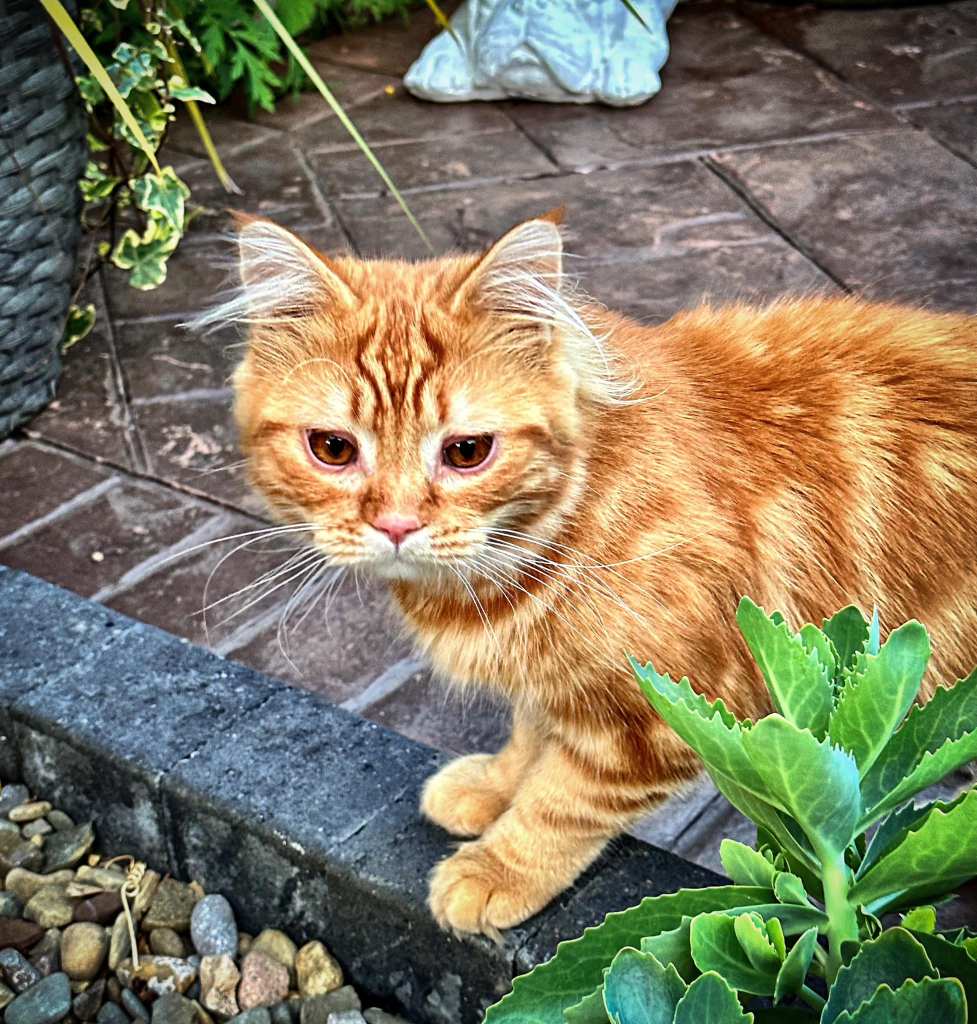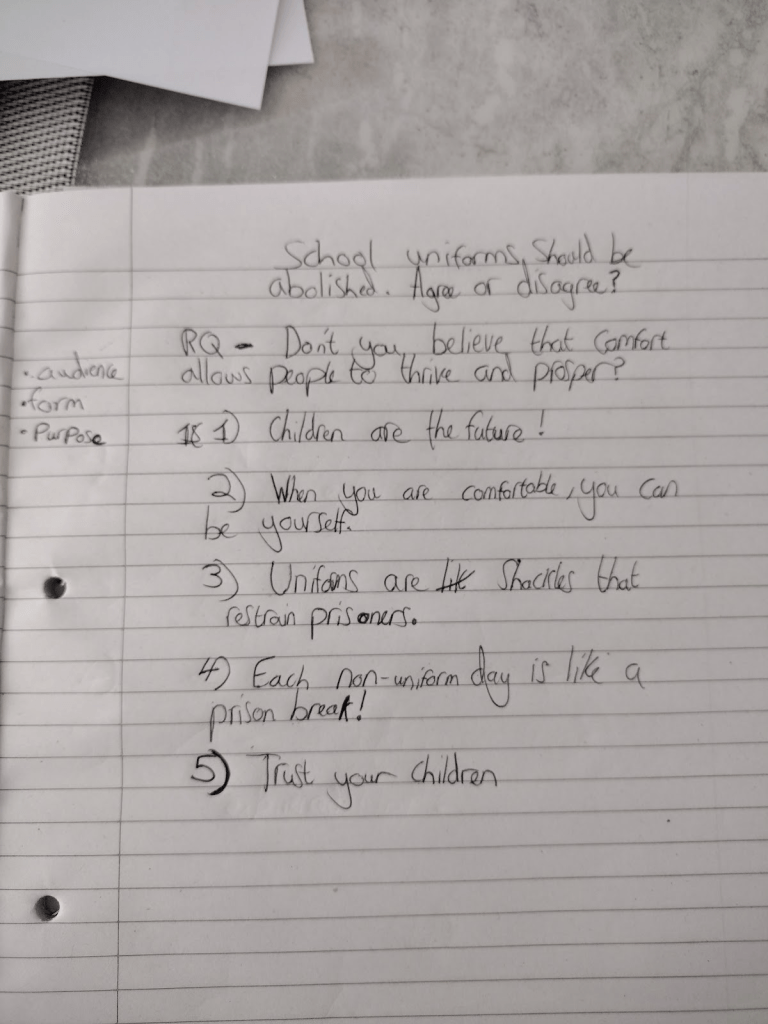So now, we get to the end of the Year 11 English exams as you sit this sometimes, very awkward little exam.
The language paper 2 is undoubtedly harder than its counterpart paper 1, due in part to the fact that there are two sources to analyse instead of one and also because the section B task is a lot harder than it seems, but there is good news to be had in this simple little thing you could do well to remember: whether it is a letter, an article or a speech, the language and tone used is the same. The only place where it might differ is when you add “Yours sincerely” after the main body of a letter.
So, to the 2023 exam we go, for June 12th, 2023.
The inserts were those that described the use of trains from a 19th and 20th century extract by Peter Fleming and Fanny Kemble respectively. At least one Twitter user added that she had to giggle when she saw the second name, but we will not go there today. Sometimes, that happens.
Then, the section B task was a speech, arguing whether or not we should use more public transport (trams, trains and buses etc) instead of cars.

Now the question I ask and the statement I am about to make may sound one and the same. Was this a down the middle of the road insert choice for a sixteen year old (most are by now) taking their final English exam?
You would think so, wouldn’t you?
But how many of us are campaigners for the use of fewer cars and increased revenue making it possible to even use trams and buses at sixteen or below? How many of the boys will have looked at these two inserts, being mad on TV programmes like Top Gear and the likes and immediately switched off to the tone of the theme of the exam? One of my students, for example, may have read half way through the first insert and intuitively felt anger at what he was being forced to read and analyse and that is before he has even got to the 40 mark task in section B.
His dream is to work for McLaren in Sheffield!
So, how did we approach this paper? How do you, if you are Year 10 when this paper was taken (or Y9 in a year’s time) undertake something that means writing about something you either know nothing about, or have very little interest in?

The first question is a “shade 4 things in” answer, which are a proven fact and even if they inverted it one year to catch you out, by asking you to shade in the areas that are false, the idea is still the same, to get nervous little you going into the examination. Then you have question 2 and the summary, followed by the rest, which are easy enough if you have read both inserts closely.
Then we get to section B and the singular task of writing a speech, to an audience presumably like the G7 or the G20, whereby you argue one side or the other for greater use of public transport. But when you planned it – please say you planned it – did it follow a logical order or not? In the end, if this subject of air pollution, conservation, easing the burden on the roads and all other things surrounding them, does not get you going, or fire your rockets for you, then there is every chance that you might struggle with this last task of your High School English life.
Now I have not seen the exact wording of the exam yet, but am told by several who took it that the task was to write a speech arguing for greater use of public transport to ease the burden on the roads and infrastructure that already exists.
What would you add into this? What tone would you use? Would you start with a rhetorical question? You are writing to argue, so laying down the guilt trip on your hearer – do not forget it is a speech and speeches are meant to be heard – is vital for success to happen. So you have to do one thing before you begin to write and after you have planned the thing onto the first half a page and that is imagine.
Yes, imagine!
If you are the sort with little imagination, then this will be difficult. If you are a free writer, one who loves to write stories, poems, plays or whatever else there might be, then this will be easier for you. Let’s say that the speech is to the Year 11 about such things, to persuade your peers to persuade their fathers, mothers and carers to do the same. If this is the case, then right now, close your eyes and imagine you are up on that stage or wherever the Head stands when delivering an assembly and you are looking out at your year group. Imagine those faces, some of whom you know and then think about the tone you will use on them.
Forceful? Controlled? Argumentative? Calm? The answer to that will depend on the stance you take in the examination task and the language you use in your speech. If you vehemently disagree with the idea of less cars and cheaper trains and trams, more of which would be allowed to carry you around your town or city for a lot less than a car would, then the tone would be forceful and strong, not quite shouting out things, but definitely getting argumentative and persuasive with your thoughts.
Your words would follow suit.
If this sort of thing makes the active campaigner (like Greta Thunberg) in you come out to play, then you are at an advantage to the student who simply has never thought of such things or cares nothing for the argument, then the chances of your answer being worthy of a level 9 might be slim.
To me, this task suits the higher achieving and not the middle or the low, so I now point to Mr. Sunak and his government, to ask them to think about things like this before they set another exam and switch off so many male students who will no doubt see nothing in today’s examination and not have done very well in section B.
This is because the problem with messing up section B is that you could score a 7 for the paper 1 on the whole and then a 5 in this one, due to the messed up section B. If that happens then your Language grade becomes an averaged 6, when a more carefully prepared insert and bunch of tasks might have meant said child got the 7 he was after. Or higher!
If it was me, then my plan would mention things like:
- Trams are our past and our future of transportation
- The history of the tram and the train – from inserts 1 and 2 cribbed, add data made up if needed
- Train fares are too high and need to be drastically reduced as it costs more than going somewhere by car by a long way
- Subsidising public transport is vital for easing congestion – how many Y11 know what that means? I am officially curious.
- Make it £1 a day to travel anywhere in your town
- Imagine being able to go to work and back for just £1. Like in Berlin. Their system is so much better than ours.
- Perhaps even, as we reduce costs for public transport, we could increase road tax, fuel duties, insurance premiums and the likes for cars, to reduce them in numbers
- We could also eradicate all cars over 10 years old – cannot afford it? You don’t get it and you use the trams instead – that would be very controversial to say the least!
Now we begin to see a well discussed, but instantly one sided speech that you then have to make personal. So you ask rhetorical questions like what car does your parent drive? You ask for answers and get words like Mercedes, BMW, Lexus, Rolls Royce (only kidding but it could happen) and the likes and you then write down, word for word, what you would say and how you would say it, using brackets for emphasis, or bold type if computing, like above, for added emphasis.
But there is a group of personal words that need to be repeated and they are words like you, your, our and ours. You have to make it personal and make it so that your argument is shared very very clearly to your audience because the one thing this kind of writing needs to be is direct! There can be no doubts with these words you will deliver.
So a lot of imagination, making it up where you need to, has to happen. It can come easy if you practice beforehand. I know because since 1989, I have been a preacher, a man who stands up each weekend and delivers a speech, a sermon if you will, to a group of people, telling them about a bible story, but asking them to consider it for themselves in how they can change and become a better person in this life.
This kind of writing this section B is asking you to create is no different. When I write a new speech/sermon, I close my eyes, imagine my audience and then begin, as I would if I were talking to them normally. It is surprising how the words come so easily after that point, because I am allowing myself to become free in my thinking and this is what you need to do.
So, with the plan in place and your first rhetorical question asked, what comes next? I would suggest the answer to that is a repeated use of something called syntactic parallelisms. These are words and phrases that are repeated at the beginning or middle of paragraphs, to make and continue a point you are making.
See the rather famous example below:
When you look at this text above, you can see the repeated use of “I have a dream” in his words. But note where they are placed. They appear at the beginning, to ram home his point. Did your speech do that today? Did you use any of these?
I have a simple ploy in asking my students to consider using things like these in threes. So if your phrase you dream up is “Trams are our past and future,” then use it three times in three paragraphs, before choosing another. We will let the great Martin Luther King Jr off with his eight or nine times in his now famous speech. After all, his was a subject far greater than today’s exam paper section B, after all.
But note the next example too, from the end of the same speech.
Notice his usage of “let freedom ring” in these final words to end his speech. Notice how he uses them and practice using similar. Think up some scenarios; climate change, pollution, school uniform abolition, better nutrition for kids, get rid of school dinners, let all students have free school meals …. there are so many to choose from and then, practice this use of syntactic parallelisms to this effect above.
When you get this skill mastered and master the use of your imagination, all shall be very well indeed.
Happy hunting.
RJ






You must be logged in to post a comment.